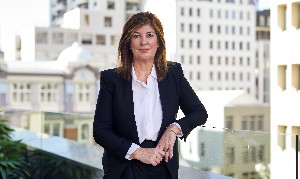
Rebecca Thomas
The FMA Debate was held at AUT on Wednesday night.
A team headed by Sam Stubbs argued in favour of passive management. Stubbs said Simplicity aimed to get its member fees down to $30 a year for all members. “Because that’s what it actually costs.”
He said passive management was best because it put more money in investors’ pockets. “It’s not that passive investing gives managers the best outcomes, it gives investors the best outcomes. It’s about making money for them. Passive management makes more money.”
He said many active managers were just “passive management in drag” because they always had one eye on the index trying not to expose themselves by underperforming.
His teammate Hugh Stevens, of Smartshares, said people wanted to believe the active management story but it was a zero sum game. “In every active trade someone beats the market and someone loses. Then you add fees.”
He pointed to SPIVA data showing that 78% of US large cap funds failed to beat the index.
Fiona Mackenzie, head of direct wealth at Jarden, said investors would need a crystal ball to determine which active managers would be able to beat the market year after year. “It’s not just understanding active managers outperform, they want to know which on a forward-looking basis … the research is incredibly clear that active managers might outperform one year but not the next.”
But Rebecca Thomas, founder of Mint Asset Management, said managers were fulfilling their fiduciary duties by actively managing. Passive investment was having a detrimental impact on markets, she said, and managers had an obligation to put clients’ interests first. “You can never beat the market with a passive strategy. You can never protect client capital in a falling market, you cannot manage returns relative to risk.”
She said active managers had a toolkit of resources to help investors that had a greater cost but they were able to outperform.
She said Mint had only underperformed in three of its 12 years and never more than two in a row. It had added 2,232 basis points of alpha, she said.
John Berry, of Pathfinder, said there were no passive funds designed to beat an index. “The best outcomes don’t come from being passive. Passive delivers zero.”
He said investors around the world wanted an active strategy.
Paul Gregory, group head of investments at Pie Funds, accused Stubbs of having made his money from active management before turning to passive.
He said if passive managers were so convinced – “why have a manager at all?”
He said if that was the best approach, investors would be better to buy a passive ETF and do away with their manager altogether.
“If they have any integrity to their argument they should be willing to vanish in a puff of their own logic.”
By audience vote, MC David Boyle declared the active management team the winner.
| « 300 FAP applications – FMA 'not worried' | Mann on a mission to diversify financial advice » |
Special Offers
Sign In to add your comment

© Copyright 1997-2026 Tarawera Publishing Ltd. All Rights Reserved
If Trump debated Bernie Sanders in a 95% Democratic neighbourhood, would anybody be surprised that the audience thought Bernie was the winner?